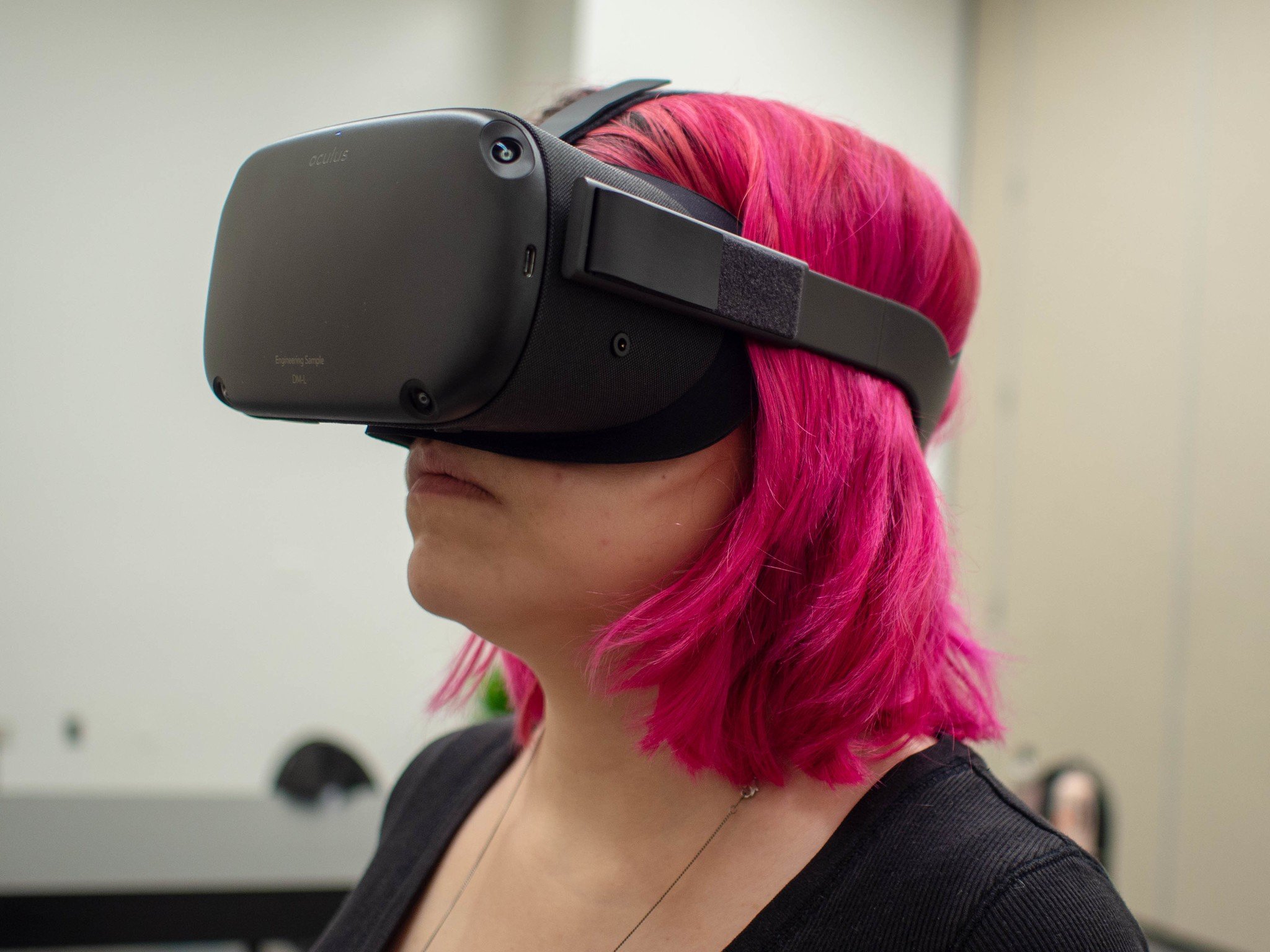Watch Dogs: Legion preview — Both timely commentary and escapist fantasy
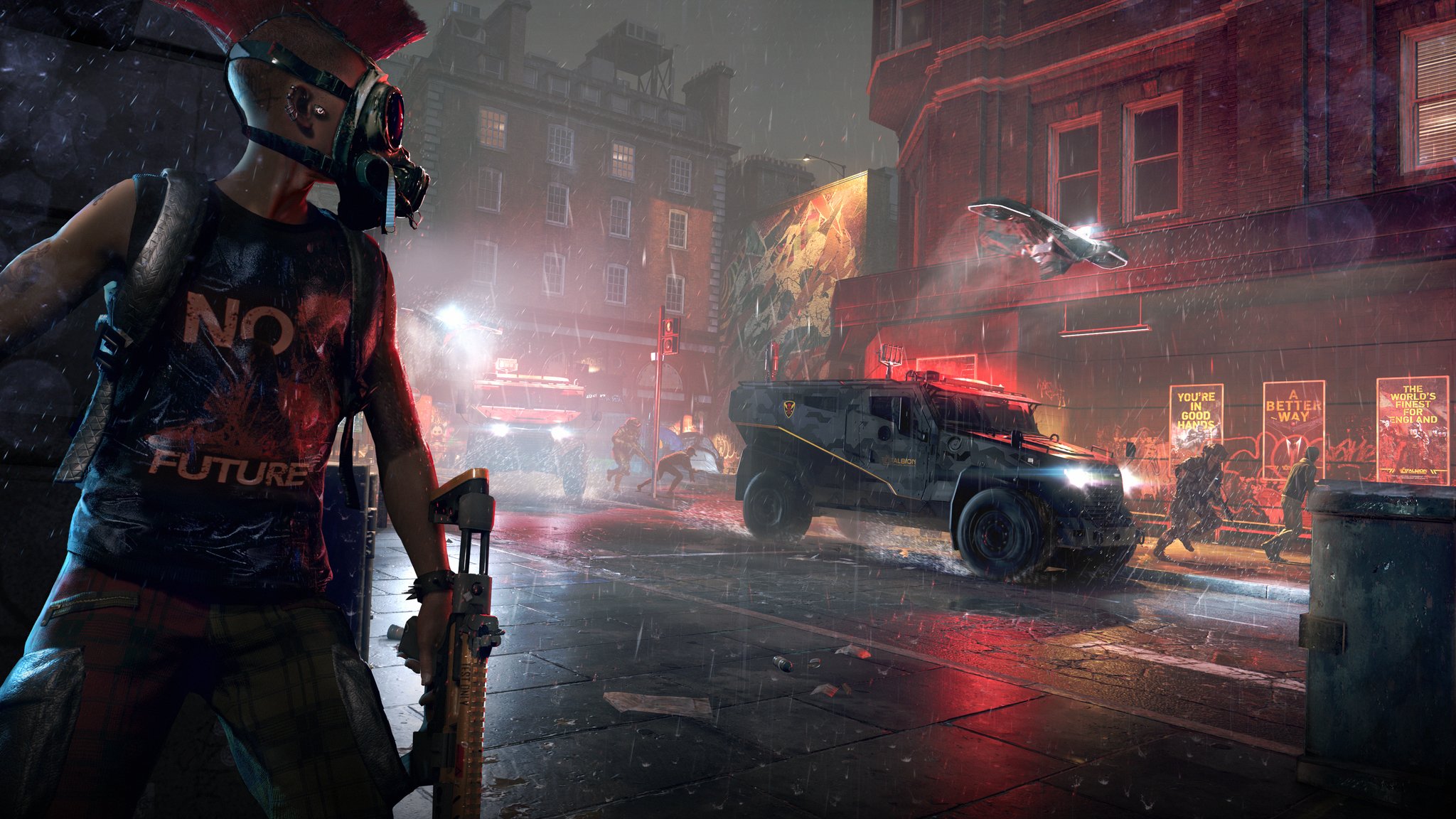
Across my four hours with Watch Dogs: Legion I ran into some very disparate, diametrically opposed encounters. In one section, I recruited a sort-of futuristic beekeeper in an audacious shock-proof suit and unleashed a swarm of robotic bees on my enemies. My demoist and I kept shouting "BEEES" every time somebody started shooting at me.
In another part of the game, I was running down a street when I came across a fight between a random citizen and an officer in the private militarized police force. I rounded the corner and the citizen gruffly called the officer a "fascist." Then the officer started beating him. I thought about butting in since this clearly crossed a problematic line, but I thought about an even earlier encounter I had where an officer was harassing an innocent London citizen. I punched the officer, but then they called reinforcements. I then spent the next 10 minutes trying not to get shot down by people with guns or drones.
Since the crux of Watch Dogs: Legion is that any NPC is interactable, you're constantly having to choose whether to try and recruit a random person on the street, interfere during a conflict, or do neither. Almost everything you do has consequences as well, although not necessarily long-ranging. There is no right way to go about the game. You can technically spend a lot of time riding around on a scooter through the huge rendering of London, crashing into people and buildings, but at its core, Watch Dogs: Legion is about your wide array of choice.
However, this is either to its advantage or its detriment. On one hand, Watch Dogs: Legion is a game you can get lost in. You can spend hours avoiding the main quest and go around doing missions for people. On the other hand, that leaves room for a lot of conflicting tones. The game can be both lighthearted and heavy, all-too-real considering the state of the world right now in 2020. It both asserts that the player should engage with issues and escape from them.
Since this isn't a full build, it's tough to say how this will all shake out. Is the procedural generation enough to make the game stand out come its Oct. 29 release date? Are the competing tones between sci-fi absurdity and real-life political commentary (whether Ubisoft wants to admit it or not) going to meld together?
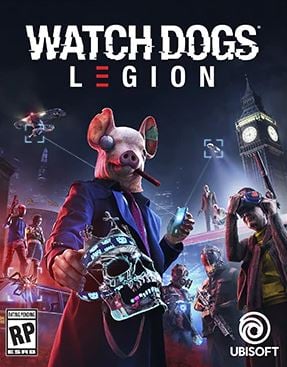
Play as just about anybody
Watch Dogs: Legion is an ambitious game from Ubisoft that tasks you with recruiting regular people from across London to join DedSec, a hacker organization that wants to take down the privatized Albion corporation.
The story in Watch Dogs: Legion — everything and the kitchen sink
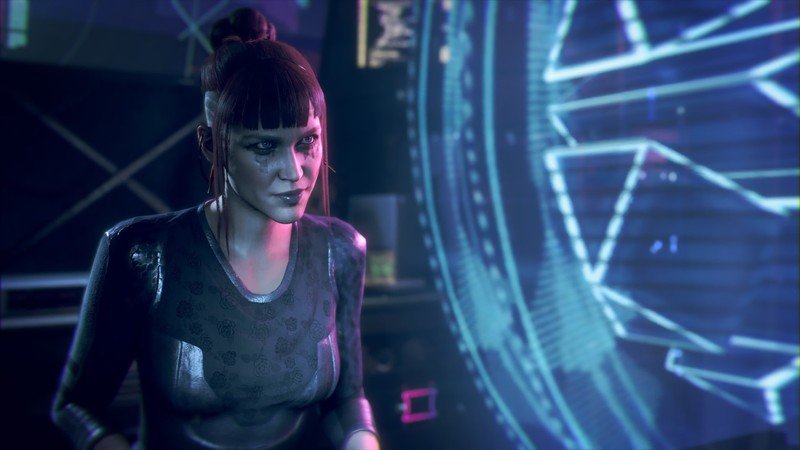
The game begins with a linear tutorial level where you play DedSec officer Dalton Wolfe, a spy clearly inspired by James Bond, on a mission under Parliament to deactivate some bombs. Unfortunately, it all goes wrong when you realize there are multiple bombs across the city. A giant holographic head appears and says that it's "time for a hard reset," detonating the explosives. It's then you realize that DedSec is being framed, but the purpose is unknown.
There are people living their normal lives, but a lot are suffering.
By the end of it all, Dalton is dead and DedSec is under attack. The player is then treated to a montage that shows how the world (or London, at least) comes under the control of Albion, a private military company controlled by Nigel Cass. Drones cloud the skies above London, there are automated checkpoints throughout the city, and automation is replacing jobs, spurring protests. Newscasters talk about how conspiracy theories on the internet say that DedSec was framed in the attack, but the news organization can't confirm it, so it must not be true.
Be an expert in 5 minutes
Get the latest news from Android Central, your trusted companion in the world of Android
As you begin your quest to recruit as many people as you can to DedSec (you'll spawn as a random character that's a part of the organization. I was a hitwoman named Lula), you'll realize there's a lot going on inside the city. You learn about it through interacting with your environment and the NPCs, going around and exploring as much as you can.
There are people living their normal lives, but a lot are suffering due to any number of forces. You pass by some people protesting xenophobia, while some people you meet have lost their jobs due to automation. One Albion officer I attempted to recruit tells me his friend has a rare blood disorder and can't get treatment because the doctor keeps upping the prices of the medication. A hacker I came into contact with had been closing up holes in a hospital's system to stop an organ trafficking ring. The aforementioned beekeeper didn't want his bee tech getting stolen for military purposes.
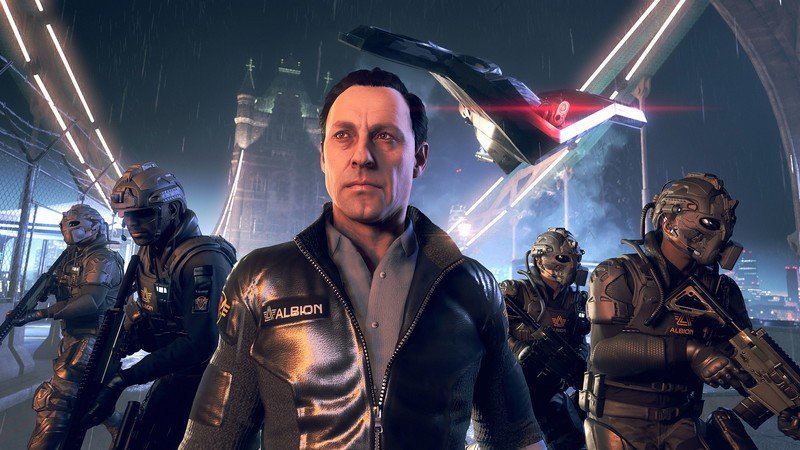
Then there's the main narrative, which follows DedSec attempting to figure out why they were framed and what Nigel Cass is up to. While I spent the bulk of my time picking up side missions, I did do one core mission that involved infiltrating a meeting between Cass and high-ranking officials throughout the city, including the police commissioner. This is where you find out that Cass is working his way towards a Minority Report-style future where drones can stop violent crimes before they're committed.
Watch Dogs: Legion is then a story about normal people (some with interesting skills) banding together to take down a much larger power, although there seems to be a lot of different ones in play. The one at the heart of the game is Albion, of course, which is a privatized corporation that somehow managed to abolish the police and get government control. However, other issues come from the kitchen sink — racism, xenophobia, unemployment, sexism, police brutality, homelessness, and everything else you can think of. It's strange to try and reconcile the foundational conflict of the game with the idea that society is broken on every level. There are multiple areas that need reform in the real world, but it takes away from the central villain and system and feels unfocused.
It's also tough to see the elements on display and think about the strife going on inside Ubisoft recently. Executives are being forced out after some horrific accusations have come to light about them, and anecdotes about how the company allegedly protected abusers and contributed to a toxic workplace culture are all over the internet. Ubisoft has said it's working on a systemic change, and many people have worked on this game, but it's a wonder if this is the right studio to go about a game with such complex themes.
Watch Dogs: Legion gameplay — choose your fighter
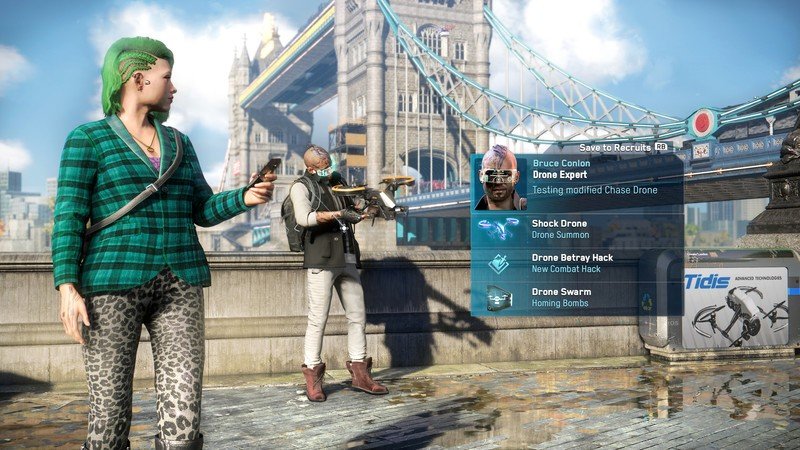
As I previously mentioned, there's a lot to do in Watch Dogs: Legion. In my four-hour demo I feel like I barely scratched the surface. I spent most of my time on recruitment, essentially collecting people I find on the street into DedSec by doing missions for them.
You have a special cellphone that allows you to scan people you come across, which brings up their names, occupations, and usually a couple of other facts. Then you can see if they'll be important or help DedSec in any way. Some people don't have a skill at all, like the celebrity whose only feature is that he's instantly recognizable, but some are immediately appealing. There's the construction worker who can not only get into construction zones easily but can also summon a drone whenever they want, which they can hop on and use to get to hard-to-reach places. Sometimes the game, in the form of the snarky AI Bagely, will give you ideas on the kinds of people DedSec needs. For example, at one point he told me to find a Barrister (a judge in the U.K.) so that any captured DedSec members are in jail for shorter periods of time. Having a paramedic on your team helps in medical situations and gives you access to a getaway ambulance (if you need it).
You see, there's little permadeath in Watch Dogs: Legion. If the character you're using gets shot and goes down, they don't "die" but instead go to prison and become unavailable to use (although my scanner did tell me with one person that permadeath was potentially available). This can be annoying if it occurs in the middle of a mission, but luckily, the next DedSec member you choose spawns not too far outside of your location, so there's not a lot of backtracking.
Most people have the same set of skills: You can crouch behind walls, shoot a gun, hack (of course) and engage in hand-to-hand combat. However, a person might be better in some areas than others, or have access to a unique skill. Older NPCs, for instance, have trouble crouching behind walls. Some people also have access to a remotely-controlled mechanical spider that they can use to sneak around an area or do some hacking. This adds a strategic element to each encounter, since you can switch around which member you use depending on where you are and what you need.
An open world that really feels like it

The scale of the open-world setting here is impressive, and it really gives the player the sense that they can go anywhere and do just about anything. Since the gimmick at the center of the game is the procedural nature of all the NPCs, which in turn gives the world the illusion of entropy, then you can say that Watch Dogs: Legion has succeeded in creating a world that feels both random and expansive.
The open-world gives the player the sense that they can go anywhere and do just about anything.
London truly feels sprawling. After playing for four hours, there were a lot of areas I didn't come close to hitting. At first I tried walking everywhere, which is possible for the first couple of missions, but soon you realize that you need to travel to different areas if you want to recruit somebody. There are multiple modes of travel; you can steal any number of vehicles (cars, trucks, scooters, etc.) and crash your way across the city or you can take the subway, which is this game's version of fast travel (and like the actual London Underground, you can take it basically everywhere).
Each mission, especially the recruitment ones, starts off the same. You usually have to break into an area and either steal some information or shut something down. It's how you go about these missions that brings in variety. Sometimes the area is easy to trespass into, like a hospital where people are already walking around. I also had to break into office buildings, construction zones, closed-off military zones, and others, and each presented unique challenges. While you could just walk in to some if you had the right credentials and uniform, others were too heavily guarded or had no open doors. That meant I had to do some parkour to get on roofs or hack a drone to ride on up. Sometimes I would lean more into stealth and keep hacking cameras or sneak around taking enemies out, but I would just as often brute-force my way in, get my information, and then run away. Depending on the character you play, you'll also have access to skills that make breaking in a lot easier — or tougher.
The choice for the player comes in allowing them to approach a challenge any way they choose. Each mission is both straightforward and a puzzle, with gaining access often being the most difficult aspect. In one mission, I had to gather information from an area swarming with Albion officers, but I was a hacker that could jump easily from camera to camera and hack machines from those cameras, so I didn't have to physically put myself at risk. In another, I had to infiltrate the Tower of London as an Albion guard. Instead of walking in through the front door, I walked by maintenance and construction workers in less populated areas behind the tower, hopped over some walls, and strolled on in.
Since you can recruit just about everybody you walk by on the street, this opens up the game even more. Not only is the world huge, just like a real city would be, but the chaotic nature of the interactions means you barely feel like you're stuck in a loop or doing repetitive tasks. Granted, I did run into one person who had the same mission and motivations as somebody I had already recruited, but I then skipped over them and moved on to the next one.
Bottom line
Watch Dogs: Legion is extremely ambitious, both in its premise and its execution. The procedural nature of the NPCs, which form the heart of the game, does give the player the sense that this is a world they can put many hours into. As more AAA titles strive for size to give a sense of realism or to trick the player that their actions have an impact on the world, it becomes tricky to do an open-world game that means something.
Legion has some unfocused politics and a story that may or may not matter, but what it does have is an NPC and mission system that works and is varied enough to make the player feel like they can recruit just about everybody into DedSec. London feels like a real city filled with normal people with their own problems, which is why the game works at least on a mechanical level. Whether it'll all come together is another question entirely.
Carli contributed gaming content across Windows Central, Android Central, and iMore. Her last name also will remind you of a dinosaur. F
